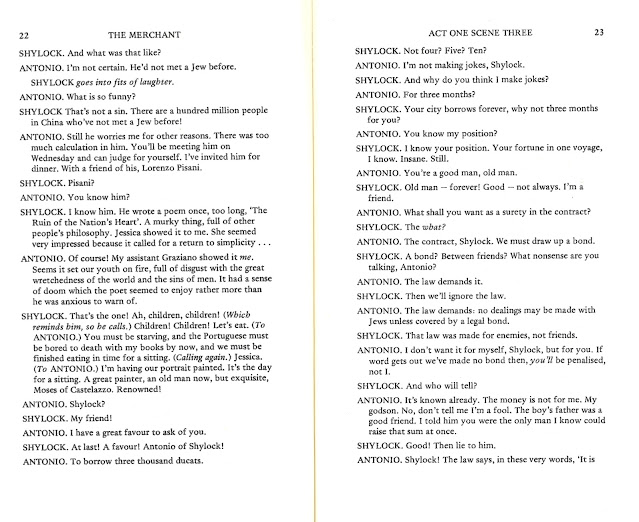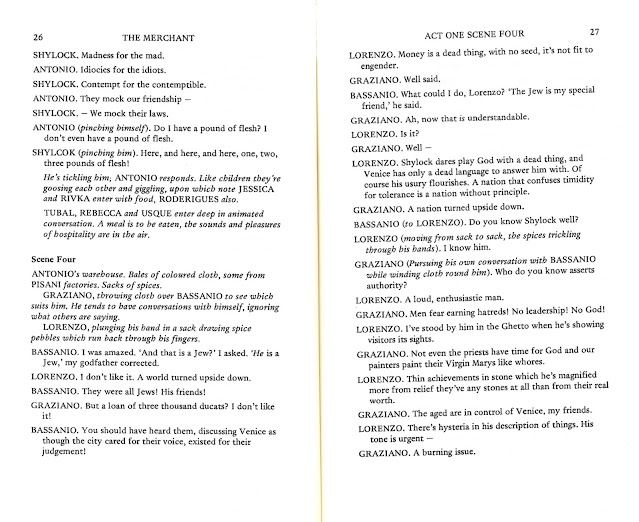A much more interesting reworking of Shakespeare's Merchant of Venice than Shylock's Revenge can be found in Arnold Wesker's The Merchant.
Wesker wrote his play because, in his view, Shakespeare's play could not escape from the antisemitism in it. This is what he says in the preface to the play:
[The idea came] when, in 1973, watching Laurence Olivier's oi-yoi-yoi portrayal of Shylock in Jonathan Miller's production at the National, I was struck by the play's irredeemable anti-semitism. It was not an intellectual evaluation but the immediate impact I actually experienced. (xvii–xviii)
The center of his vision of a new version of the play was the different way he imagined Shylock's reaction in the courtroom scene:
The real Shylock would not have torn his hair out and raged against not being allowed to cut his pound of flesh, but would have said "Thank God!" The point of writing a play in which Shylock would utter these words would be to explain how he became involved in such a bond in the first place. (xviii)
That idea led to the fascinating retelling of the plot of Shakespeare's play. In Wesker's, Shylock and Antonio are the best of friends. And Shylock would happily lend Antonio whatever funds he needs—gratis, as Shylock would call it. But Venice has a law that any loan from a Jew to a Christian must be public—a bond must be signed and registered.
That's when Antonio and Shylock hit on the idea of having a pound of flesh be the collateral for the loan. They want to mock this ridiculous Venetian law and show just how ugly that law is. Let's take a look at that scene:
That sets things up nicely. And the plot flows as we might expect. When Antonio can't pay up, it all comes into court. Shylock can't refuse to collect on his bond: To do so would be to undermine all the laws of Venice, putting the Jews of the city in particular peril.
As we build to that point, we see the antisemitism of the Christian characters interrogated—and they do not come off well. Shakespeare's Shylock's famous "Hath not a Jew hands?" speech is given to Lorenzo in the courtroom, making it condescending and patronizing rather than movingly eloquent of shared humanity.
It's a remarkable play that would make a fascinating companion work to be read in conjunction with Shakespeare's Merchant of Venice.

















No comments:
Post a Comment